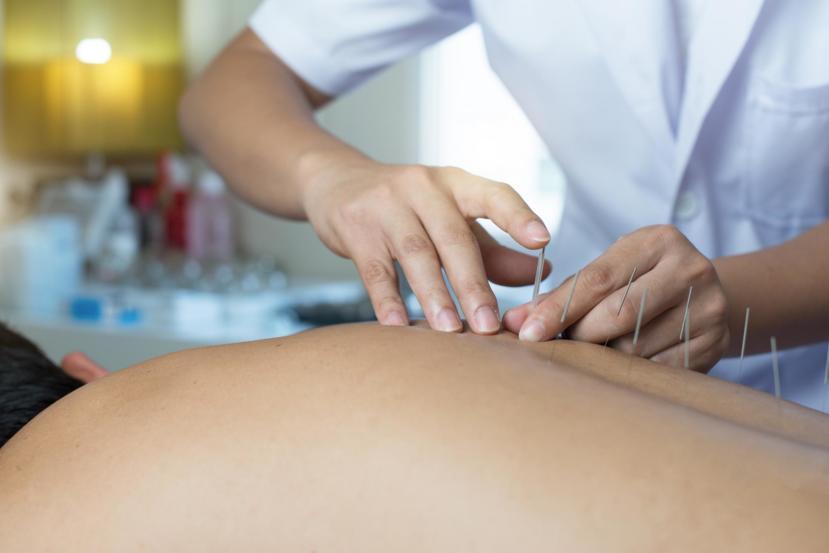Why It's Difficult to Answer Acupressure/Pressure Point Questions

I run a solo clinic in Saint Joseph, MO. My main focus is distal acupuncture, which means I'm not very likely to treat exactly where the patient is indicating there's an issue. I see a lot of people for pain management and a good portion of my patient population are looking for help with depression, anxiety, or stress.... more
As part of this site, patients have the capability of asking questions of practitioners and subject matter experts. Recently I’ve been seeing a lot of questions that take the form, “Please tell me x pressure point for treating y health condition”. I generally try to help these folks understand this isn’t how acupuncture/acupressure works, but it seems to me this might be one of those ‘teachable moments’ and so I thought a blog post might be a better resource.
For starters, these questions are usually phrased in terms of wanting an acupuncture/acupressure point for some western disease name. Technically speaking, acupuncture doesn’t treat western diseases or western diagnoses. What happens when you visit most licensed acupuncturists is they take your entire presentation, develop a Chinese diagnosis using the Chinese diagnostic system, and then treat that. Western disease names are sometimes useful, western labs and imaging are often very useful, but the actual treatment is designed around the presentation from the perspective of Chinese medicine.
The Chinese diagnostic system is based on systems theory, not reductionism. If a patient’s chief complaint is, say, headache, an MD or other practitioner of conventional medicine is going to focus on that and may largely ignore other symptoms a patient might have. To a practitioner of Chinese medicine though, those other symptoms might be absolutely conclusive in terms of arriving at a diagnosis. In Chinese medicine, we are considering the human system as an integrated whole and our diagnostic categories reflect that. A headache with particular pain qualities, occurring at a particular place on the head, coupled with nausea or reflux will fall into one category. A headache with different pain qualities, occurring at a different place on the head, coupled with something like back pain may fall into a different diagnostic category. Different diagnostic categories have different core treatments.
To put it another way, Chinese medicine categorizes health issues in a very different way. Issues that are one thing from the perspective of conventional medicine often break out to multiple potential categories in Chinese medicine. Without knowing specifically what I'm dealing with from the Chinese perspective, it's hard to provide useful treatment advice.
Second, acupuncture/acupressure points are not fixed in location. Most of the reference books give point locations based on anatomic landmarks, which incorrectly transmit the idea that the points are static. To be fair there's usually a page or two in most of these books, generally the intro, pointing out the anatomic locations are simply a starting point for location, but many don’t read that part. The bottom line is anatomic references get one to the general area, but it takes a degree of palpation and skill to locate the actual point. Even if I could somehow come up with a point that might be useful to any given person on the internet, it would be very difficult to help that person understand how to locate that point on their own body.
Third, I’m assuming that most of these questioners are looking for a way to help themselves with a health issue – which I both appreciate and support. The problem is that some points are very difficult for a person to get the correct angle and pressure when trying to do it to themselves. So, even assuming the correct point for the issue and the person locating the point properly, they still might not be able to stimulate the point correctly to get the desired result.
Lastly, I’m a doctor of acupuncture – I mostly use needles to stimulate these points and cause a change for a person. I will very occasionally use pressure but, in my experience, acupuncture using needles gives faster and longer-lasting results when compared to pressure techniques. There are only a couple of cases where I will use acupressure over acupuncture:
1. Young patients. Young folks often don't tolerate needles well and usually don't require the same level of stimulation as someone in their 20s or beyond in order to get a positive result from treatment. Pressure techniques are usually sufficient to get the job done and they're less intimidating.
2. People who have a history of fainting when any sort of needle breaks their skin. There is a very small percentage of the population who genuinely fall into this category. Generally, they know who they are and will tell me upfront that they pass out with needles. For these folks, pressure techniques are the only safe way to proceed.
Since most people posing these questions aren't practitioners of Chinese medicine and may have never visited a practitioner of Chinese medicine, they have no way of knowing what I, or someone like me, might need to know in order to answer. This is why it's best to seek out a licensed acupuncturist in your location if you're interested in trying Chinese medicine. The best resource for board-certified and state-licensed acupuncturists is the 'Find a Practitioner' lookup at NCCAOM.org.







